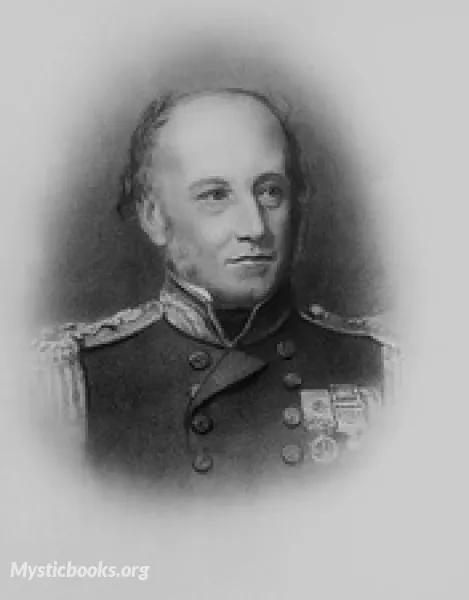
Timeline
Title
Country/Nationality
William Henry Smyth
William Henry Smyth, a distinguished British astronomer, left an indelible mark on the scientific community during the 19th century. His life's work was shaped by his relentless pursuit of knowledge and passion for astronomy, which led to numerous groundbreaking discoveries and notable contributions to the field. This essay explores the life, principles, accomplishments, and lasting legacy of William Henry Smyth.
Early Life and Education:
Born on January 21, 1788, in Westminster, London, William Henry Smyth exhibited an early interest in the celestial world. He received a well-rounded education, encompassing various subjects like mathematics, natural philosophy, and navigation. His deep fascination with the night sky became evident during his formative years.
Astronomy and Contributions:
Smyth's astronomical journey began when he joined the Royal Navy as a midshipman. His naval career provided him with valuable opportunities to observe and study the stars during long voyages at sea. Over time, he became proficient in celestial navigation and gathered invaluable data for the compilation of navigational manuals.
Smyth's most significant contribution to astronomy was his extensive work on star charts and cataloging celestial objects. His magnum opus, "A Cycle of Celestial Objects," published in 1844, included a comprehensive catalog of more than 6,000 stars, along with their positions and magnitudes. This work was lauded for its accuracy and usefulness to both amateur and professional astronomers.
Principles and Philosophy:
William Henry Smyth was known for his meticulous attention to detail and dedication to precision in his astronomical observations and calculations. He firmly believed in the importance of rigorous scientific methods to ensure the accuracy of his findings. His principles of accuracy and thoroughness earned him respect and admiration within the scientific community.
Notable Works:
Apart from his star charts, Smyth authored several influential books on astronomy and navigation. His "The Bedford Catalog" (1836) and "Sidereal Chromatics" (1864) were well-received and further cemented his reputation as a prominent astronomer and scholar.
Legacy and Remembrance:
William Henry Smyth's contributions to astronomy had a lasting impact on the field. His star charts and catalogs remained widely used references for decades after their publication. Smyth's dedication to precision and accuracy set a standard for future astronomers and contributed to the advancement of astronomy as a scientific discipline.
Smyth passed away on September 8, 1865, leaving behind a legacy of astronomical discoveries and contributions that continue to inspire and inform the scientific community. He is remembered as a meticulous and talented astronomer whose work significantly advanced the understanding of the night sky.
Conclusion:
William Henry Smyth's life and work exemplify the power of passion and dedication in pursuing scientific knowledge. His meticulous observations and cataloging of celestial objects have left an enduring impact on the field of astronomy. Smyth's legacy as an astronomer and scholar is a testament to the profound influence that one individual can have on expanding humanity's understanding of the cosmos.
Books by William Henry Smyth

The Sailor's Word-book, D - G
Embark on a nautical adventure through the seas of language with "The Sailor's Word-book, D - G" by the illustrious William Henry Smyth. Dive into a treasure trove of maritime terminology and immerse yourself in the rich lexicon of sailors and seafar...

The Sailor's Word-book, H - M
Embark on a voyage into the rich and mysterious world of the sea with "The Sailor's Word-Book, H-M" by Admiral William Henry Smyth. This meticulously crafted nautical dictionary is your compass to the language of the ocean, a lexicon of the maritime...

Technocracy
William Henry Smyth's "Technocracy" explores the concept of a government run by technical experts. The book examines the potential benefits and drawbacks of such a system, arguing that technical expertise can be applied to solve social problems and a...

Sailor's Word-book, A - C
'Sailor's Word-Book' is a comprehensive and detailed reference work on nautical terminology. It delves into the origins and meanings of words used by sailors, navigators, and those involved in the maritime world. This book serves as a valuable resour...

Sailor's Word-book, N - R
This book, "Sailor's Word-book, N - R" by William Henry Smyth, is a comprehensive collection of sea terms and phrases. Compiled with a blend of precision and humor, it serves as a valuable resource for both seasoned sailors and landlubbers seeking to...

Sailor's Word-book, S - Z
An extensive compendium of nautical terminology, encompassing a wide spectrum of maritime vocabulary from the vast expanse of the cosmos to the depths of the ocean. This volume, covering words beginning with the letters S through Z, delves into the o...